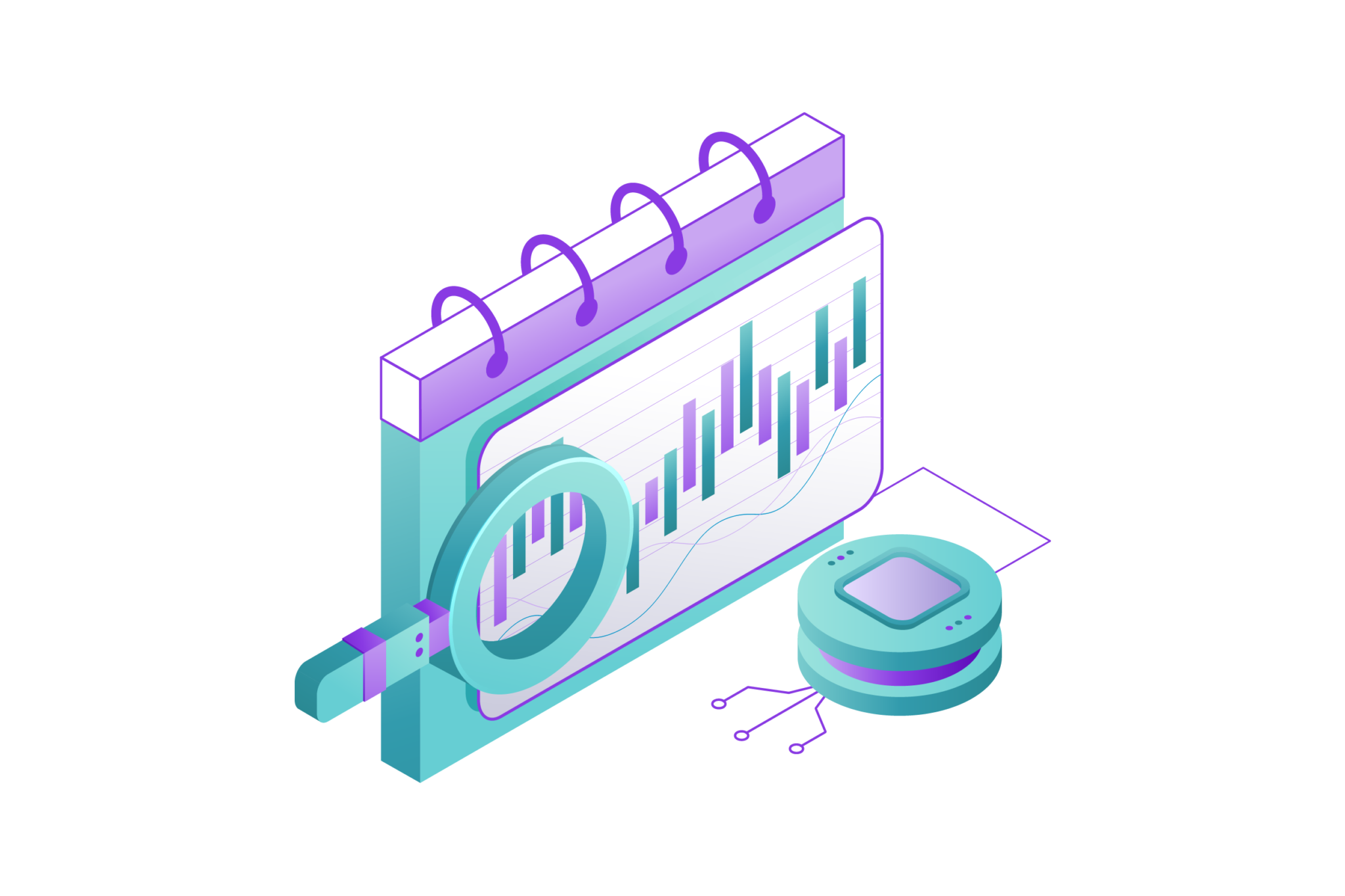
Quant engineering, or quantitative engineering for those who love the full name, is making waves across industries like finance and tech. Why? Because it’s the secret sauce that blends math, programming, and data science to help businesses make smarter decisions. Picture this: with financial markets getting more complex and datasets growing into mountains, companies need something fast, sharp, and reliable. That’s where quant engineers come in.
In finance, these experts are like behind-the-scenes wizards, creating models that not only predict market trends but also shape the way traders make moves and manage risks. Think of them as the architects behind those sleek algorithmic trading systems or the folks helping businesses dodge risky pitfalls. Without them, staying ahead in this supercharged, data-heavy world would be next to impossible.
But it’s not just about finance. Quant engineering is spreading its wings, and if you’re in tech—or really any field where data fuels decisions—you’ll want to pay attention. This isn’t just a buzzword; it’s a game-changer. Grasping what quant engineering is can give you fresh insight into how industries are evolving, and who knows? It might just be your new secret weapon for staying competitive.
What Is Quant Engineering?

Quant engineering, in its simplest form, is the art of turning complex data into something practical and actionable. Picture a world where mind-bending math and sleek algorithms shape decisions — from the stock market to business strategies — all driven by the sharp minds of quant engineers.
Let’s break it down: quant engineers design and develop models and algorithms that make sense of massive amounts of data. Now, this isn’t just crunching numbers. These folks are the secret sauce behind trading algorithms, risk models, and anything involving big data. Sure, finance is their playground, but their skills can apply to almost any field where data holds the key to success. Picture healthcare, tech, even sports.
Think of them like the problem-solvers of the future. They combine top-tier mathematics, coding (languages like Python and R), and a whole lot of machine learning know-how to predict patterns and create strategies. Ever wonder how hedge funds seemingly predict market shifts? That’s quant engineers at work, tweaking their algorithms to forecast stock prices or optimize entire portfolios. But these models aren’t just for finance gurus. Imagine simulating future business trends or even predicting the next big craze in tech.
What’s interesting is that this field is like a bridge. It connects the mind-numbing complexity of data to real-world solutions. Quant engineers are the brains behind the scenes, but their work impacts everything from the way investments are made to the efficiency of industries you might not even think about.
So, if you’re into the idea of merging math with real-life impact, quant engineering could be that underrated force shaping the future.
Also Read: 7 Best Undergraduate Degree Courses For Becoming A Quant in 2024
Why Is Quant Engineering Essential?

Quant engineering is like the secret sauce that helps industries make smarter decisions based on tons of data. Whether it’s finance, tech, or even retail, it’s become a must-have skill set for any business looking to stay ahead. But what’s really cool about quant engineering is how it transforms raw data into actionable insights that can completely change how businesses operate.
Let’s dive into why it’s so essential—without all the technical jargon.
Here’s Why Quant Engineering Matters
- Helps Predict the Future: Quant engineers build algorithms that predict trends, whether in stock markets or customer behavior, so companies can stay ahead of the game.
- Automates Processes: Imagine trades happening faster than the blink of an eye. Quant engineers create systems that automate tasks like trading, freeing up humans for more strategic work.
- Minimizes Risk: Businesses use quant models to simulate all sorts of “what-if” scenarios. Want to know what happens if there’s a market crash? A quant engineer has already run the numbers.
- Optimizes Efficiency: Whether it’s tech companies managing their data or retailers improving supply chains, quant engineers design systems that streamline everything, boosting productivity.
- Unlocks the Power of Big Data: Quantitative methods let companies crunch through massive amounts of data to make sense of it all, helping them make more informed decisions.
Beyond Finance
You might think quant engineering is just for Wall Street, but it’s popping up in healthcare, where it’s used for predicting patient outcomes or even designing better treatment plans. Retail companies also use it for everything from predicting trends in shopping habits to optimizing inventory. It’s basically the toolkit that helps any data-rich business thrive.
So, if you’ve ever wondered how companies seem to “magically” know what’s coming next or how they manage complex operations, now you know—it’s quant engineering working behind the scenes!
Core Skills in Quant Engineering

Let’s dive into what makes quant engineering tick. It’s not just about being good at math or coding—it’s about using these skills to solve real-world problems. Here are some of the core skills that really matter:
Math and Statistics: The Foundation
- Quant engineers need a strong grip on math topics like probability and calculus.
- These skills help predict how markets might move or how to best balance investments.
- It’s math, but with a purpose—used to build models and solve big financial puzzles.
Coding: Your Key Tool
- Knowing how to code in languages like Python, R, or C++ is essential.
- Coding helps you create algorithms that can analyze data quickly and accurately.
- Think of it as the tool that lets you turn data into something you can act on.
Data Science and Machine Learning: Making Sense of Data
- With machine learning, quant engineers can process huge amounts of data.
- They use these techniques to find hidden patterns and trends.
- It’s all about teaching computers to learn from data and improve decision-making.
Financial Knowledge: Understanding Markets
- You can’t just be a math whiz—you need to understand how financial markets work.
- Knowing about market trends and economic indicators helps you build better models.
- It’s the mix of finance and tech that makes quant engineers so effective.
Putting It All Together
- Quant engineers turn raw data into useful insights that can guide decisions.
- They use a mix of math, coding, and finance to solve problems and shape strategies.
- The goal is to create smart models that help companies make better choices.
Each of these skills builds on the others, making quant engineers experts at turning data into actionable insights.
Applications of Quant Engineering
Quant engineering isn’t just a niche for finance nerds or stock market experts. It’s like the Swiss Army knife of the data world, finding its way into many industries beyond finance that deal with large data sets. Let’s take a closer look at how quant engineering is shaking things up across different fields.
Algorithmic Trading
One of the most well-known uses of quant engineering is in algorithmic trading. It’s not just about making fast trades, but about making the right ones with razor-sharp precision. Here’s how it works:
- Quant engineers design algorithms that can trade stocks, currencies, or commodities in milliseconds.
- These algorithms react to market changes based on pre-set conditions, analyzing real-time data faster than any human could.
- The result? Efficient trades that maximize profit while minimizing human error.
Risk Management
Companies don’t like surprises when it comes to losing money. That’s where quant engineers step in to help with risk management. They:
- Develop models that simulate a wide range of market scenarios, from the calm to the chaotic.
- These models allow businesses to see how their investments might perform under different circumstances.
- With this information, companies can plan ahead, reducing risks and making more informed decisions.
Data Analytics
Quant engineers don’t just crunch numbers for financial markets—they’re also the secret sauce behind many industries’ decision-making processes. In fields like retail, they:
- Analyze customer behavior to help predict what people will buy, when, and in what quantity.
- Their models help optimize supply chains, making sure companies don’t run out of stock or waste money on overstock.
- This approach improves efficiency, helping businesses cut costs while staying responsive to customer needs.
Healthcare
In healthcare, the stakes are higher than just money—it’s about people’s lives. Quant engineers:
- Work on processing massive datasets from medical records, research studies, or clinical trials.
- They create predictive models to forecast how diseases will progress or which treatments might have the best outcomes for specific patients.
- This helps doctors make more personalized treatment plans and improve patient care overall.
Other Areas Where Quant Engineering Shines
- Weather Forecasting: Meteorologists use quant models to predict weather patterns, helping with everything from farming to flight safety.
- Sports Analytics: In sports, quant engineers help teams analyze player performance and game strategies, leading to better decisions both on and off the field.
- Energy Sector: Energy companies use quantitative models to forecast supply and demand, ensuring efficient resource distribution and reducing waste.
Quant engineering proves itself as a versatile tool, making waves in industries you might not expect. Whether it’s optimizing trades, managing risk, predicting consumer behavior, improving patient care, or even forecasting the weather, the power of data is opening doors to smarter, faster, and more effective solutions.
Also Read: What is Quant Researcher? A Deep Dive into Their Role
How To Get Started in Quant Engineering
Getting started as a quant engineer might seem like climbing a mountain at first, but with the right mindset and approach, you’ll find the journey engaging and, dare I say, fun. Whether you’re a curious student or a professional ready for a career pivot, let’s break it down, step by step, and offer some fresh perspectives on how to start strong.
Step 1: Build a Solid Educational Foundation (But Keep It Broad)
- A degree in math, computer science, or economics helps, but don’t limit yourself.
- Develop a love for problem-solving—interdisciplinary knowledge is your edge.
- Creative side? Behavioral economics? Bring it in. Spot patterns others miss.
Step 2: Learn to Code (And Make It Fun!)
- Python and R are essential, but learning C++ or Java is a big plus.
- Coding is your way to experiment—build models, run simulations, test ideas.
- Debugging? It’s the best problem-solving bootcamp you’ll get.
Step 3: Get Fluent in Finance (If You’re Going That Route)
- Understand how financial markets work, even if you don’t have a PhD in finance.
- Learn risk management and trading strategies—it’s like being an architect of financial models.
- Think beyond finance: Apply these skills to energy, healthcare, or even sports analytics.
Step 4: Master Analytical Thinking (It’s Your Superpower)
- Analytical thinking is your ninja skill—solve puzzles, crack problems.
- Hackathons, Kaggle competitions, and case studies sharpen your mind.
- Ask the questions no one else does, and tackle problems from unique angles.
Step 5: Stay on Top of Trends (Because Things Change Fast)
- The quant world moves quickly—what’s hot today might be outdated tomorrow.
- Be a lifelong learner—take courses, earn certifications, read industry blogs.
- Adapting to new tools and trends keeps things exciting.
Bonus Step: Make Networking Your Secret Weapon
- Don’t fly solo—get involved in the quant community through conferences and forums.
- Networking leads to job opportunities, collaborations, and mentorships.
- Learn from others’ experiences—it’ll take you further than going it alone.
Conclusion
Quant engineering isn’t just about crunching numbers for big financial firms—it’s about transforming how entire industries use data to get ahead. Sure, we often associate it with finance and Wall Street, but its reach goes much further. From predicting patient outcomes in healthcare to optimizing inventory for retail giants, quant engineers are the problem-solvers behind the scenes, using math, coding, and data science to make sense of today’s data overload.
Now, here’s the exciting part: as businesses become more data-driven, the demand for quant engineers is only going to grow. Why? Because companies need sharp minds who can turn raw data into actionable insights—helping them not just manage risks but uncover new growth opportunities they might otherwise miss. The real power of quant engineering is that it doesn’t just help businesses react; it gives them the tools to stay ahead of the curve.
So, whether you’re thinking about diving into this field or just curious about its impact, quant engineering is paving the way for the future of decision-making. It’s where technology meets innovation, and as industries get more complex, these engineers will be the architects of strategies that shape tomorrow’s success. This is more than just number-crunching—it’s about driving innovation in ways we’re only beginning to understand.

Joshua Soriano
As an author, I bring clarity to the complex intersections of technology and finance. My focus is on unraveling the complexities of using data science and machine learning in the cryptocurrency market, aiming to make the principles of quantitative trading understandable for everyone. Through my writing, I invite readers to explore how cutting-edge technology can be applied to make informed decisions in the fast-paced world of crypto trading, simplifying advanced concepts into engaging and accessible narratives.
- Joshua Soriano#molongui-disabled-link
- Joshua Soriano#molongui-disabled-link
- Joshua Soriano#molongui-disabled-link
- Joshua Soriano#molongui-disabled-link
